Excavation Contractors Englewood
Best Excavation Contractors in Englewood
Get multiple Excavation Services quotes for your project today! Compare profiles, reviews, accreditations, portfolio, etc... and choose the best service.

Steadfast Excavating
58 reviews61 Alverne Drive, Poland, 44514, USAbout Steadfast Excavating Steadfast Excavating LLC is an excavation company located in Northeast Ohio that services the surrounding area. Our company’s values start with quality and reliability. Our services include earthmoving, excavating, land clearing, leveling and grading, water and sewer lines, trench digging, pond work, so much more.
- Services
- Why Us?
- Our Team
- Gallery
Get Quote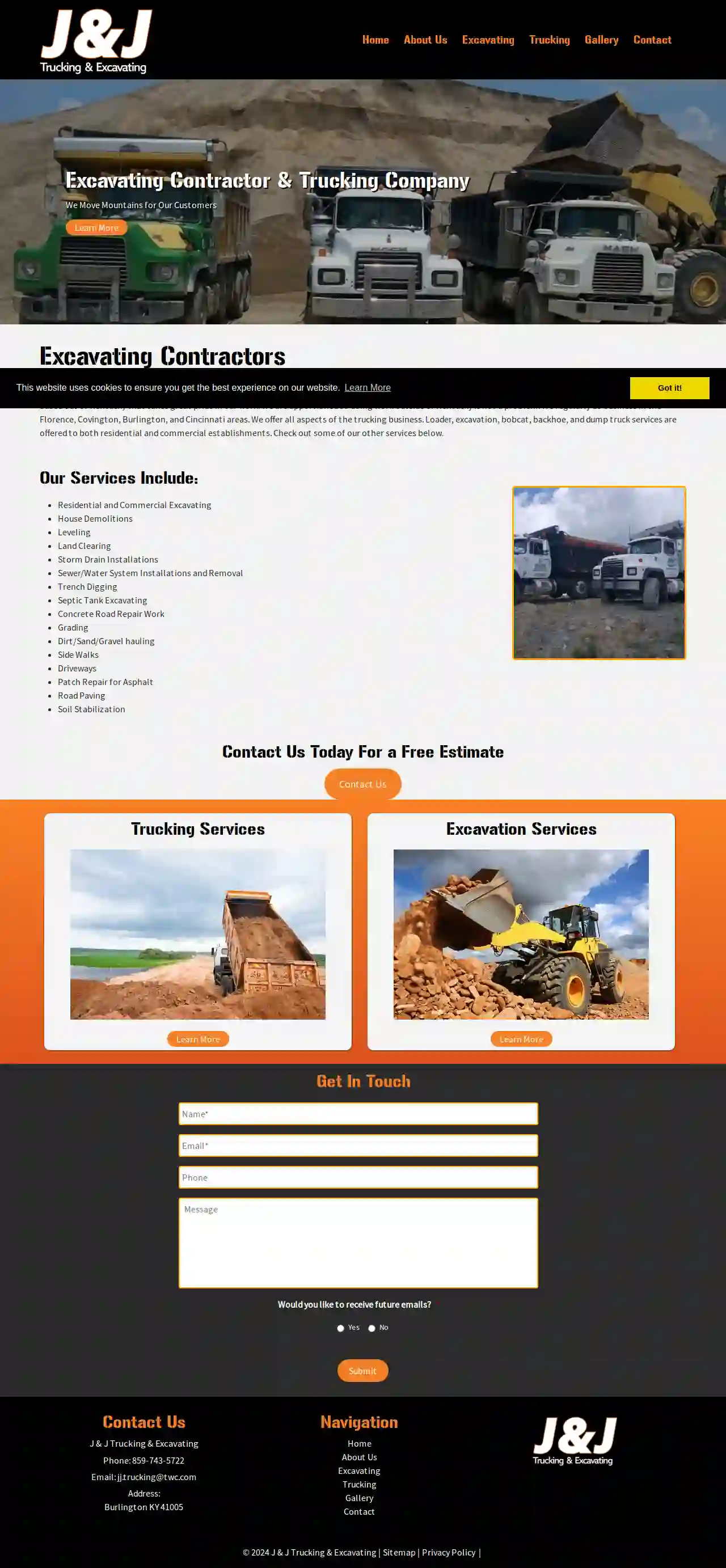
J&J Trucking & Excavation
3.73 reviewsBurlington, 41005, USWe Move Mountains for Our Customers J & J Trucking and Excavating has been offering commercial and residential trucking and excavation services for over 30 years. We are a small family-owned company based out of Kentucky that takes great pride in our work. We are apportioned so doing work outside of Kentucky is not a problem. We regularly do business in the Florence, Covington, Burlington, and Cincinnati areas. We offer all aspects of the trucking business. Loader, excavation, bobcat, backhoe, and dump truck services are offered to both residential and commercial establishments. With over 30 years in the trucking and excavating business you can trust on J & J trucking to get the job done right the first time. We are a small family-owned company based out of Kentucky that takes great pride in our work. We treat our customers the way we want to be treated and strive to make sure your project goes off without a hitch.
- Services
- Why Us?
- Gallery
Get Quote
Planum Contracting
523 reviews6342 Markham Court, Independence, 41051, USBuilding relationships one excavation at a time. Proverbs 16:3 About Us At Planum Contracting we specialize in a variety of excavation services and concrete services. Services include (but not limited to) fine grading, lazer dozers, GPS dozers, digging footers, land clearing, site work, and concrete services. Call us today and lets talk about how we can assist you in your project. Working Together One of the owners here at Planum was a former division 1 football player. The only way to get the job done properly and correct is to work as a team. Here at Planum we will work as team to get your job done on time and on budget. Why Choose Us? We work with architects and designers to produce beautiful, functional structures. Call us today and bring our project management skills and extensive construction experience to your next project.
- Services
- Why Us?
Get Quote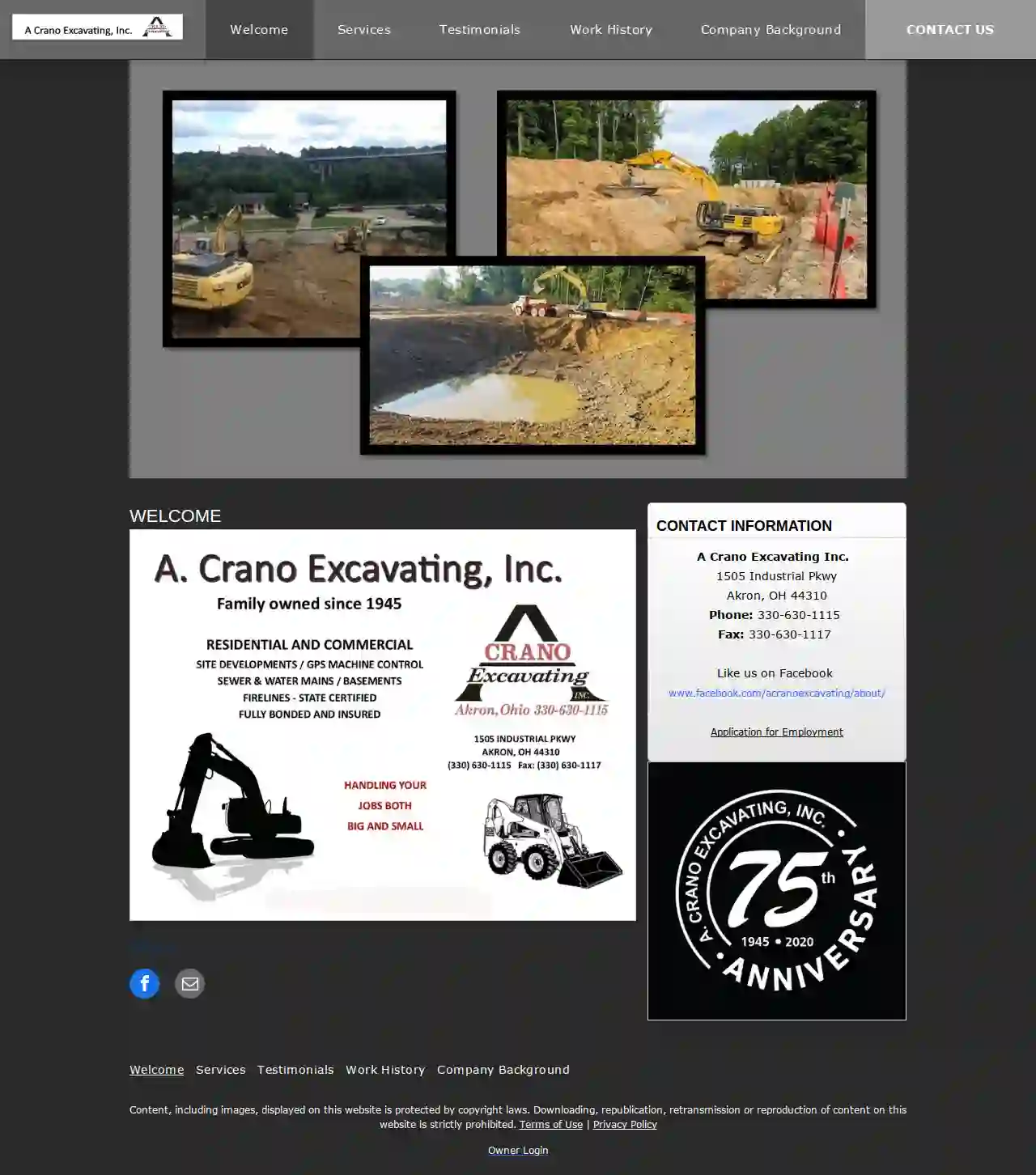
A Crano Excavating Inc
4.815 reviews1505 Industrial Pkwy, Akron, 44310, USWelcome to A Crano Excavating Inc. A Crano Excavating Inc. is a family-owned and operated business with over 30 years of experience in the excavating industry. We are committed to providing our clients with the highest quality service and workmanship. We specialize in a wide range of excavating services, including site preparation, grading, utility installation, and more. We are also proud to offer a variety of other services, such as demolition, hauling, and snow removal. We are fully insured and bonded, and we are committed to safety and environmental responsibility. We are dedicated to providing our clients with the best possible service and value. We are committed to building long-term relationships with our clients, and we are always striving to exceed their expectations. We are a team of experienced professionals who are dedicated to providing our clients with the highest quality service and workmanship. We are committed to safety and environmental responsibility, and we are always striving to exceed our clients' expectations.
- Services
- Why Us?
- Gallery
Get Quote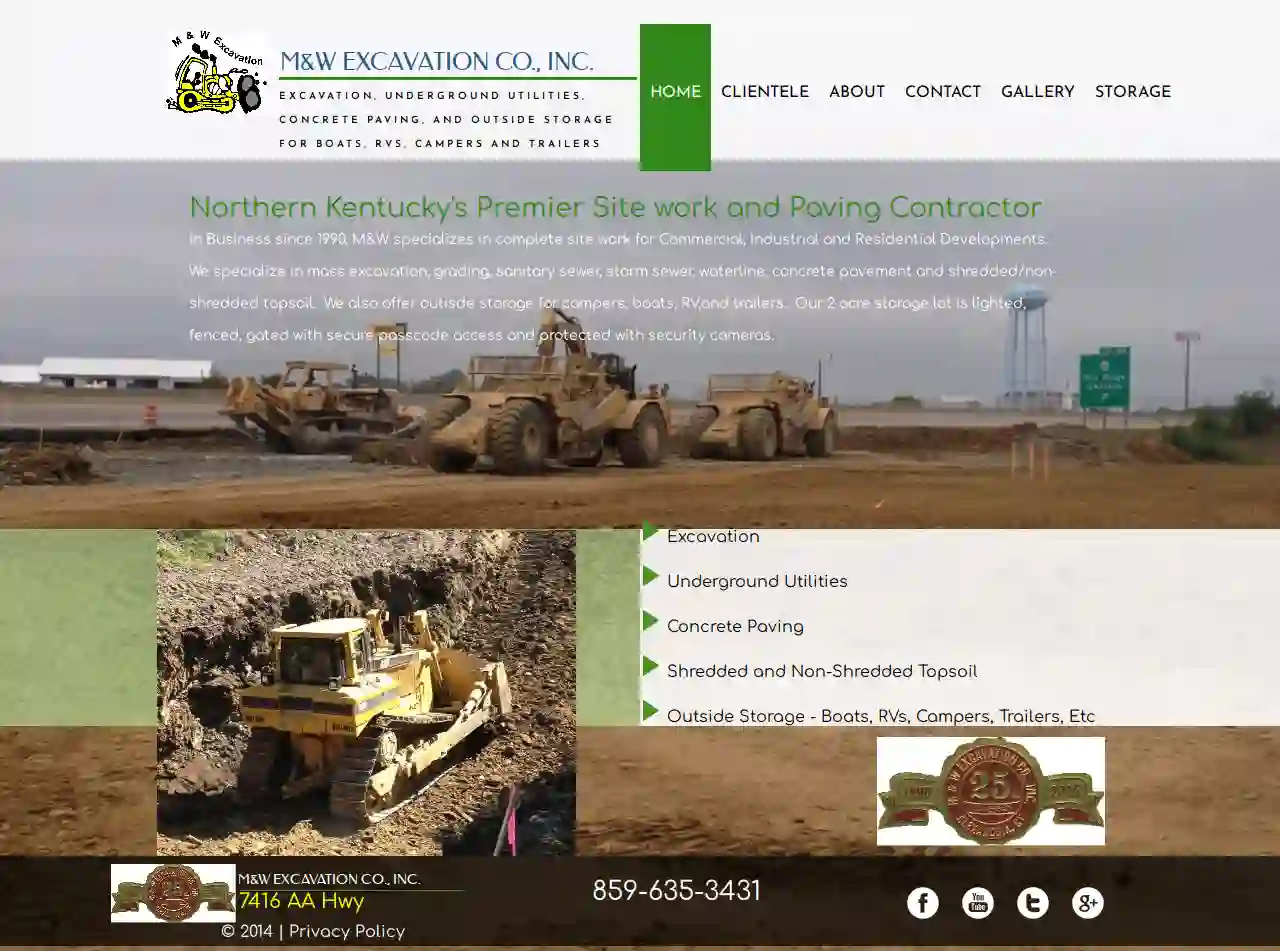
M & W Excavation Co Inc
3.25 reviews7416 AA Hwy, USNorthern Kentucky's Premier Site Work and Paving Contractor M&W Excavation Co., Inc. has been serving Northern Kentucky since 1990, specializing in complete site work for commercial, industrial, and residential developments. We are a full-service site contractor with a reputation for quality and experience, regularly called on by builders and homeowners. No project is too big or too small for our team. We specialize in a wide range of services, including: Mass Excavation Grading Sanitary Sewer Storm Sewer Waterline Concrete Pavement Shredded and Non-Shredded Topsoil We also offer secure outside storage for campers, boats, RVs, and trailers. Our 2-acre storage lot is lighted, fenced, gated with secure passcode access, and protected with security cameras.
- Services
- Why Us?
- Gallery
Get Quote
Ferguson Construction
4.110 reviewsP.O. Box 726400, 400 Canal Street, Sidney, 45365, USBUILDING IS COMPLICATED. YOU DESERVE AN EASY BUTTON. We know the challenges and complications of commercial construction. We anticipate them and even embrace them. Our “easy button” approach simplifies the entire process while reducing uncertainty and miscommunication, giving businesses the positive experience they deserve. EXPLORE OUR EASY BUTTON ON APPROACH
- Services
- Why Us?
- Accreditations
- Testimonials
- Gallery
Get Quote
Steve R Rauch, Inc.
3.537 reviewsDayton, USSince 1976, Steve R. Rauch Inc. has been providing services to Ohio. Our success is rooted in our commitment to delivering innovative solutions, working hard, maintaining honesty and fairness, and valuing every customer. These core values remain the foundation of our business, even after 40 years.
- Services
- Why Us?
- Our Team
- Gallery
Get Quote- Ki
Kincaid Excavating & Paving
4.85 reviewsDayton, US- Services
- Why Us?
- Accreditations
- Gallery
Get Quote 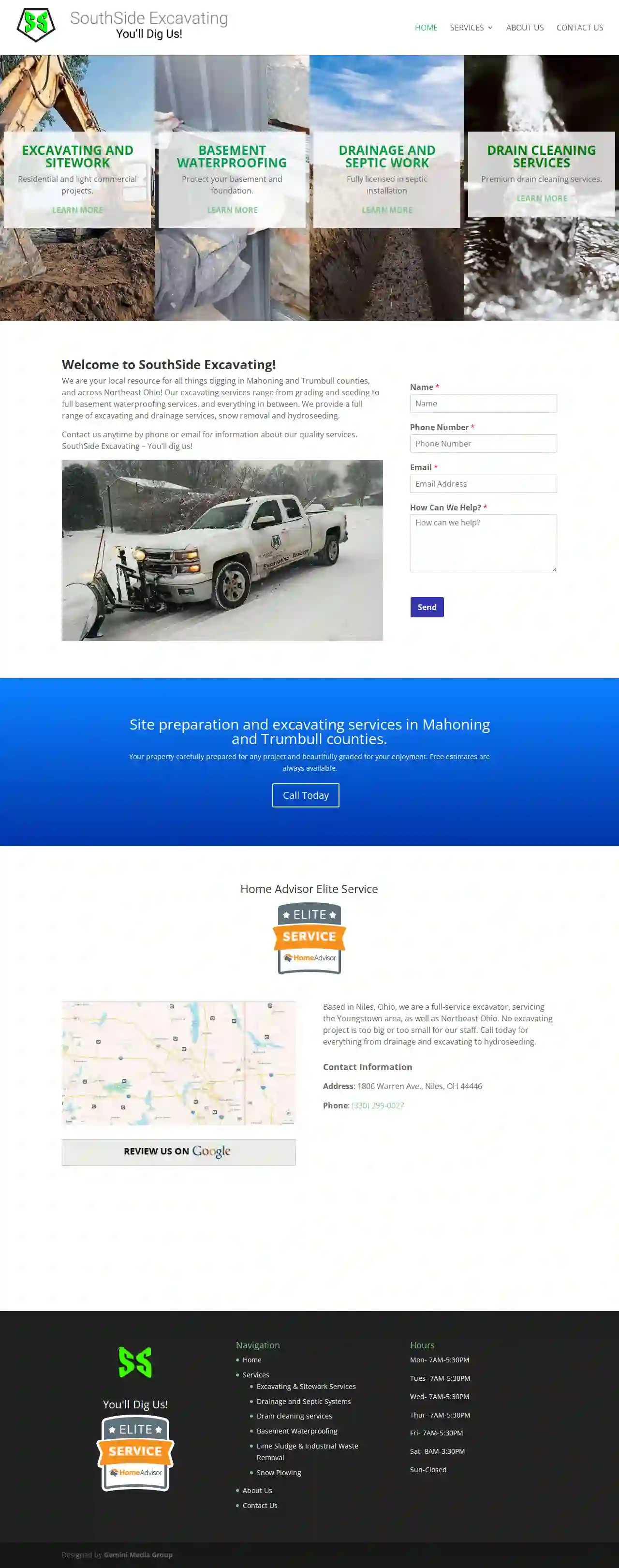
Southside Excavating
4.19 reviews1806 Warren Ave., Niles, 44446, USWelcome to SouthSide Excavating! We are your local resource for all things digging in Mahoning and Trumbull counties, and across Northeast Ohio! Our excavating services range from grading and seeding to full basement waterproofing services, and everything in between. We provide a full range of excavating and drainage services, snow removal and hydroseeding. Contact us anytime by phone or email for information about our quality services. SouthSide Excavating – You’ll dig us!
- Services
- Why Us?
- Gallery
Get Quote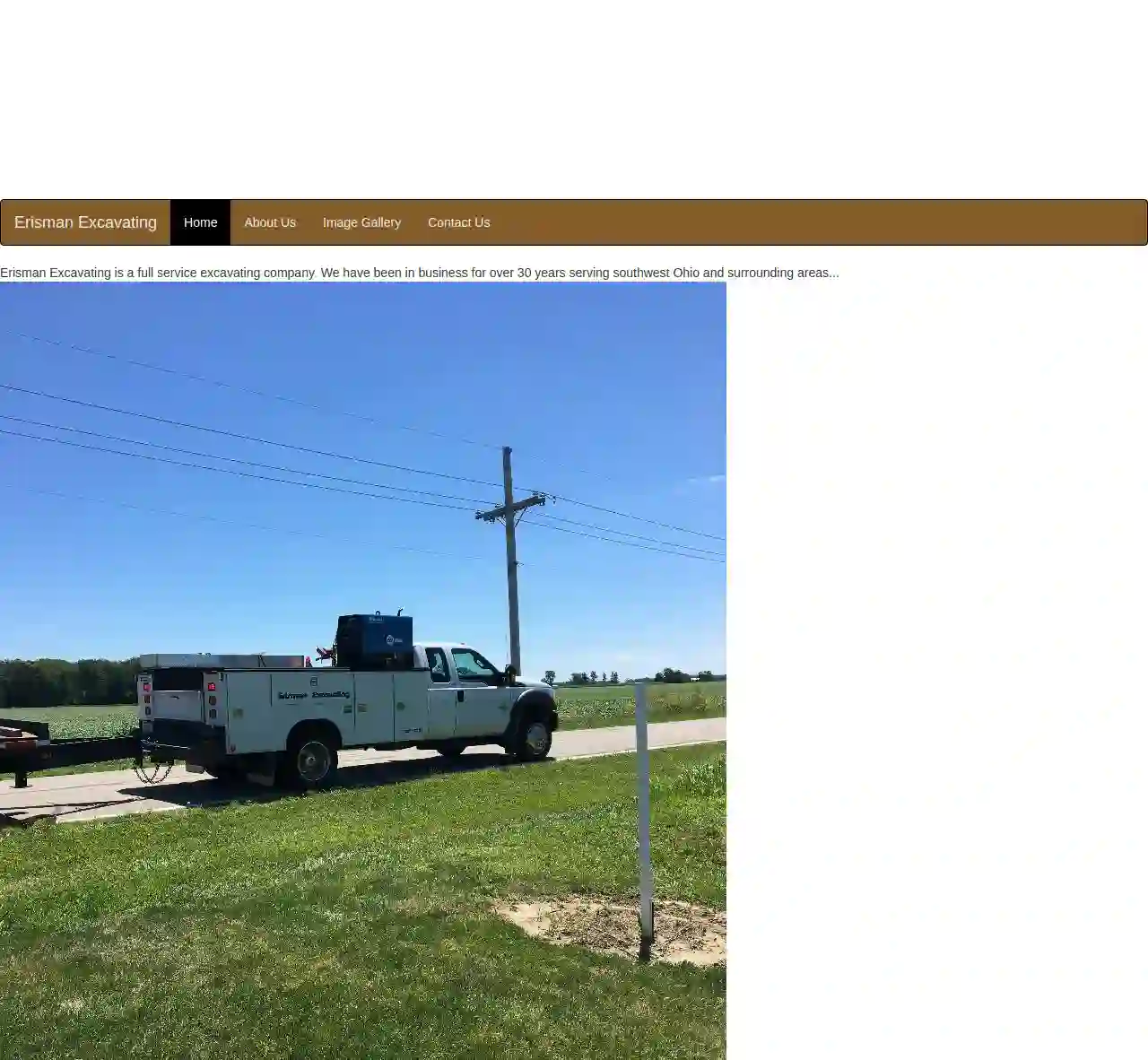
Erisman Excavating, LLC
53 reviewsDayton, USAbout Erisman Excavating Erisman Excavating is a full-service excavating company with over 30 years of experience serving southwest Ohio and surrounding areas. We are committed to providing our clients with high-quality workmanship and exceptional customer service. Our team of experienced professionals is dedicated to completing your project on time and within budget. We offer a wide range of excavating services, including: Site preparation Grading Demolition Utility installation And more! We are proud to be a trusted and reliable excavating company in the area. We are committed to safety and environmental responsibility. Contact us today for a free estimate.
- Services
- Why Us?
- Gallery
Get Quote
Over 22,076+ Excavation Contractors onboarded
Our excavation experts operate in Englewood and surroundings!
ExcavationHQ has curated and vetted Top Excavation Contractors in Englewood. Find a top & reliable pro today.
Frequently Asked Questions About Excavation Contractors
- Excavators: Versatile machines with a bucket, arm, and rotating cab for digging, lifting, and moving earth.
- Backhoes: Similar to excavators but with a digging bucket on the back and a loader bucket on the front, ideal for trenching and smaller excavations.
- Bulldozers: Powerful machines with a large blade for pushing earth, clearing land, and leveling surfaces.
- Skid Steers: Compact and maneuverable loaders with various attachments (buckets, forks) for digging, loading, and grading in tight spaces.
- Trenchers: Specialized machines for digging narrow trenches for utilities.
- Dump Trucks: Vehicles for hauling excavated material to disposal sites.
- Planning and Surveying: Defining the excavation area, marking utility lines, and determining the required depth and grade.
- Site Preparation: Clearing vegetation, removing obstacles, and ensuring site accessibility.
- Excavation: Using appropriate equipment (excavators, backhoes, etc.) to remove earth and create the desired excavation.
- Hauling and Disposal: Transporting excavated material to designated disposal sites, complying with environmental regulations.
- Backfilling and Compaction: Refilling the excavation with suitable material and compacting it to achieve the required density and stability.
- Grading and Finishing: Leveling and shaping the surface to the final grade for landscaping or construction.
- Hauling to Designated Disposal Sites: Transporting excavated material to approved landfills or recycling centers.
- Recycling or Reuse: If suitable, some excavated soil might be recycled for other projects or reused on-site for landscaping or backfilling.
- Complying with Regulations: Adhering to local and environmental regulations for soil disposal to prevent contamination or illegal dumping.
- Project Size and Scope: Larger, more complex excavations naturally take longer.
- Soil Conditions: Rocky or challenging soil types can slow down progress.
- Site Accessibility: Limited access might require more time for maneuvering equipment and hauling materials.
- Weather: Inclement weather can cause delays.
- Permitting and Inspections: Waiting for permits or inspections can extend the timeline.
What equipment is used for excavation?
What is the excavation process?
How do you handle soil disposal after excavation?
How long does an excavation project take?
What equipment is used for excavation?
- Excavators: Versatile machines with a bucket, arm, and rotating cab for digging, lifting, and moving earth.
- Backhoes: Similar to excavators but with a digging bucket on the back and a loader bucket on the front, ideal for trenching and smaller excavations.
- Bulldozers: Powerful machines with a large blade for pushing earth, clearing land, and leveling surfaces.
- Skid Steers: Compact and maneuverable loaders with various attachments (buckets, forks) for digging, loading, and grading in tight spaces.
- Trenchers: Specialized machines for digging narrow trenches for utilities.
- Dump Trucks: Vehicles for hauling excavated material to disposal sites.
What is the excavation process?
- Planning and Surveying: Defining the excavation area, marking utility lines, and determining the required depth and grade.
- Site Preparation: Clearing vegetation, removing obstacles, and ensuring site accessibility.
- Excavation: Using appropriate equipment (excavators, backhoes, etc.) to remove earth and create the desired excavation.
- Hauling and Disposal: Transporting excavated material to designated disposal sites, complying with environmental regulations.
- Backfilling and Compaction: Refilling the excavation with suitable material and compacting it to achieve the required density and stability.
- Grading and Finishing: Leveling and shaping the surface to the final grade for landscaping or construction.
How do you handle soil disposal after excavation?
- Hauling to Designated Disposal Sites: Transporting excavated material to approved landfills or recycling centers.
- Recycling or Reuse: If suitable, some excavated soil might be recycled for other projects or reused on-site for landscaping or backfilling.
- Complying with Regulations: Adhering to local and environmental regulations for soil disposal to prevent contamination or illegal dumping.
How long does an excavation project take?
- Project Size and Scope: Larger, more complex excavations naturally take longer.
- Soil Conditions: Rocky or challenging soil types can slow down progress.
- Site Accessibility: Limited access might require more time for maneuvering equipment and hauling materials.
- Weather: Inclement weather can cause delays.
- Permitting and Inspections: Waiting for permits or inspections can extend the timeline.